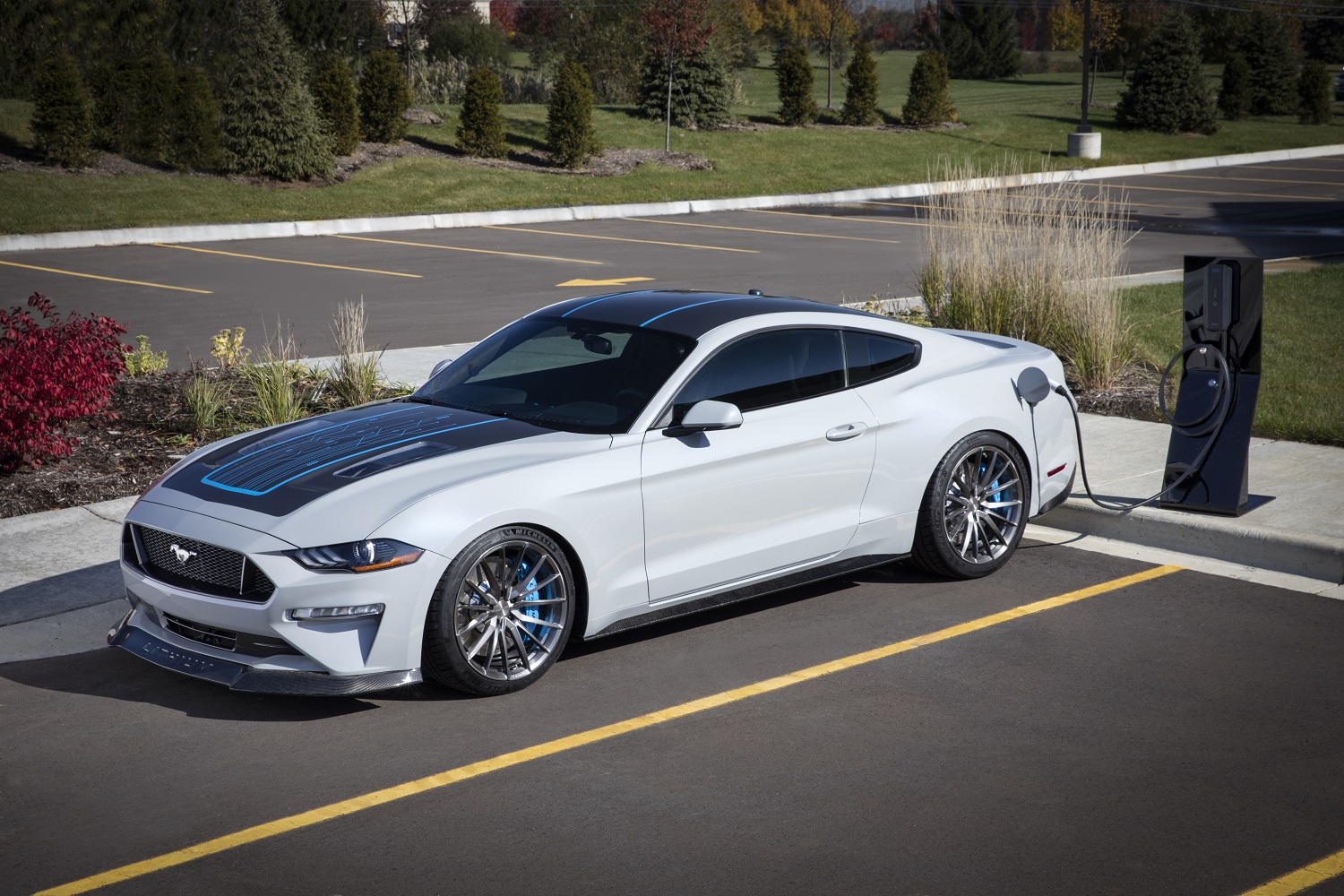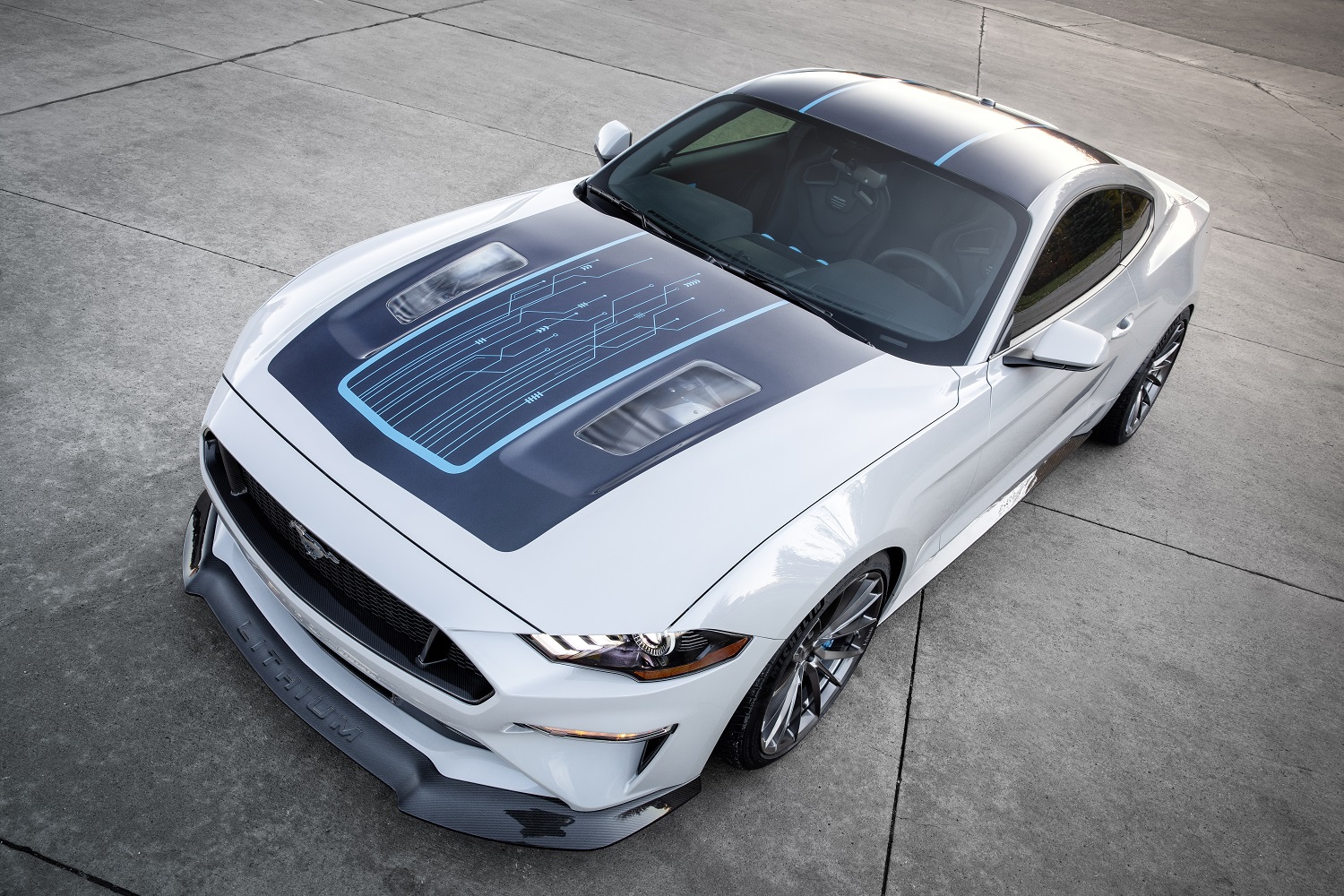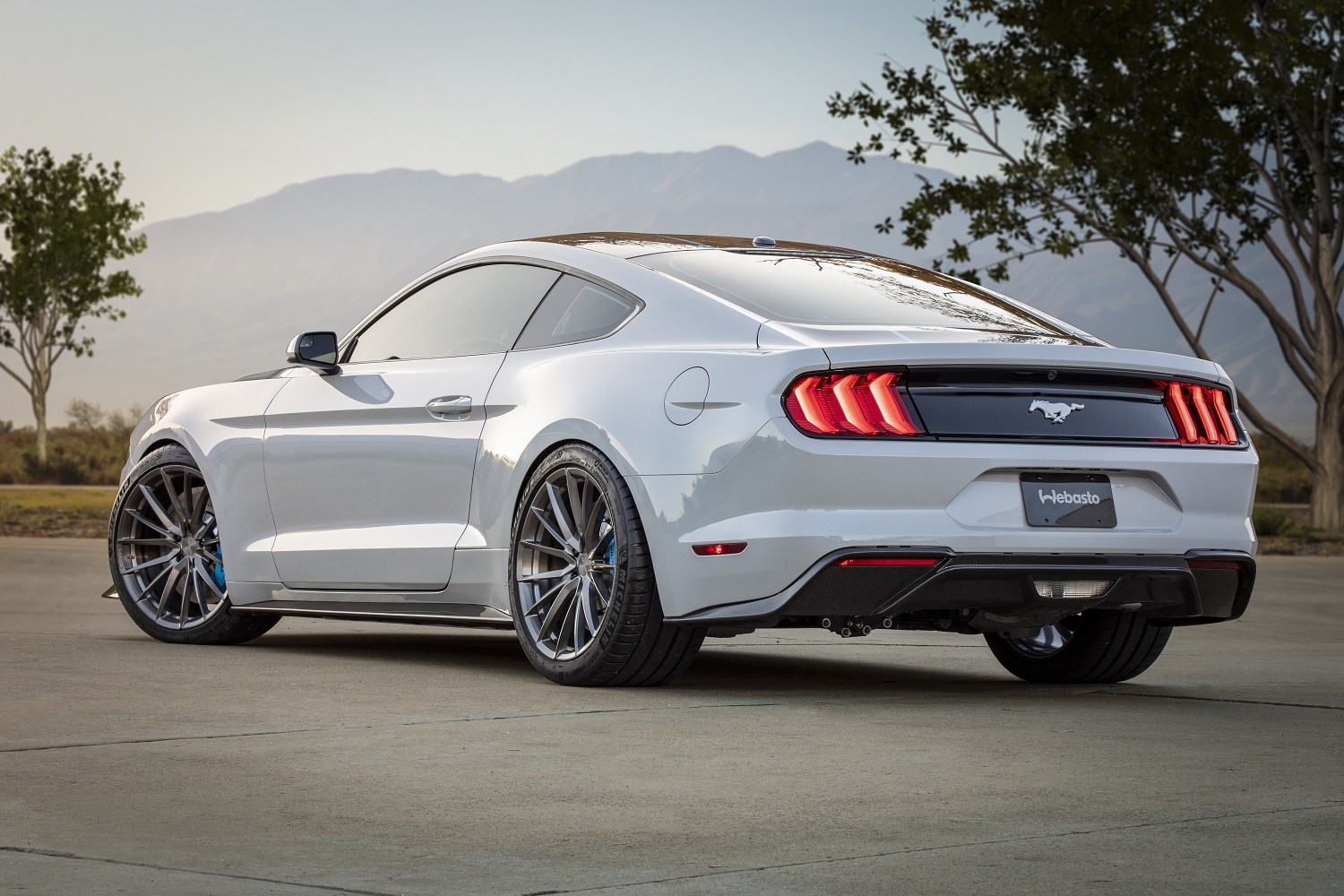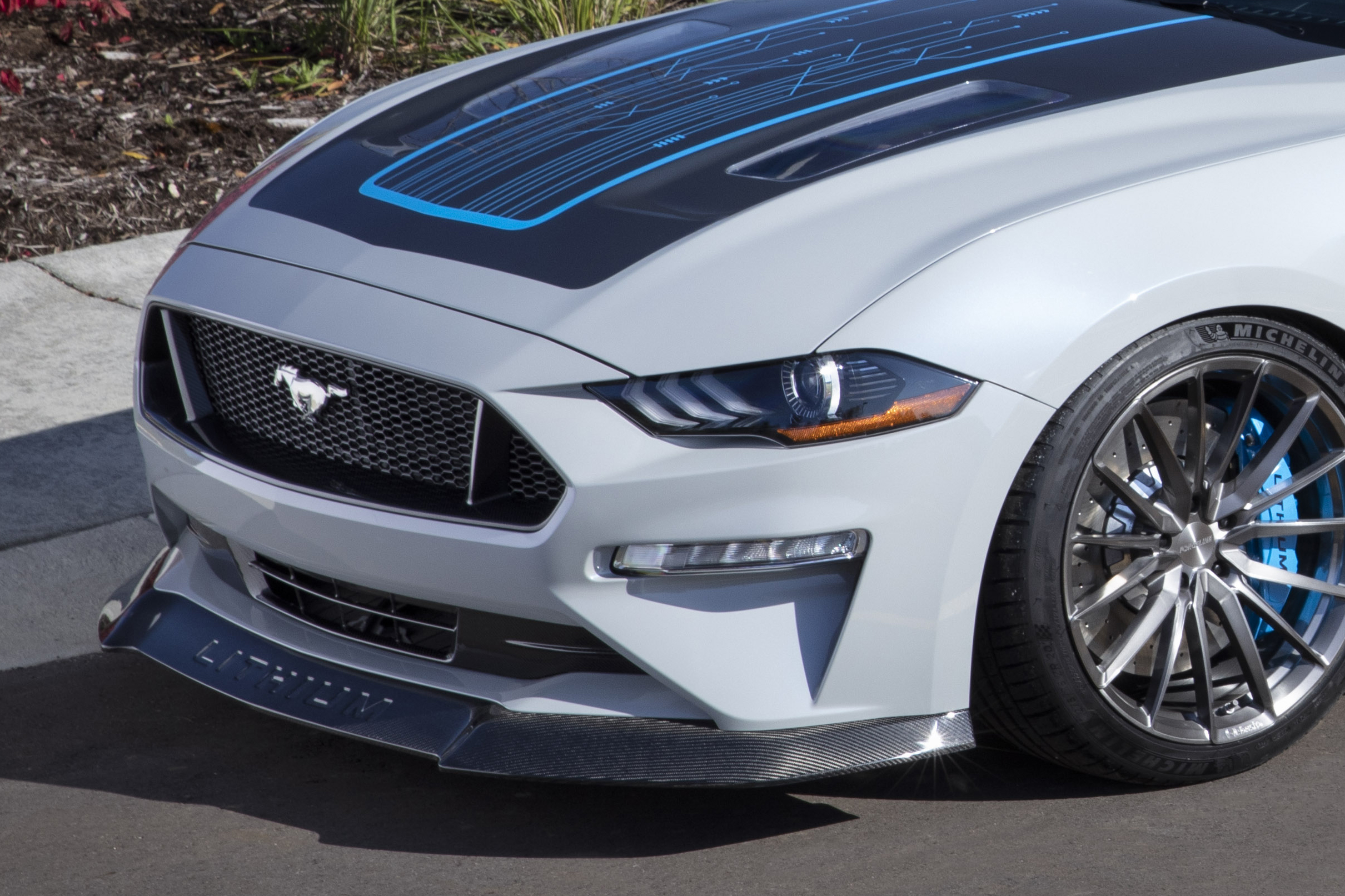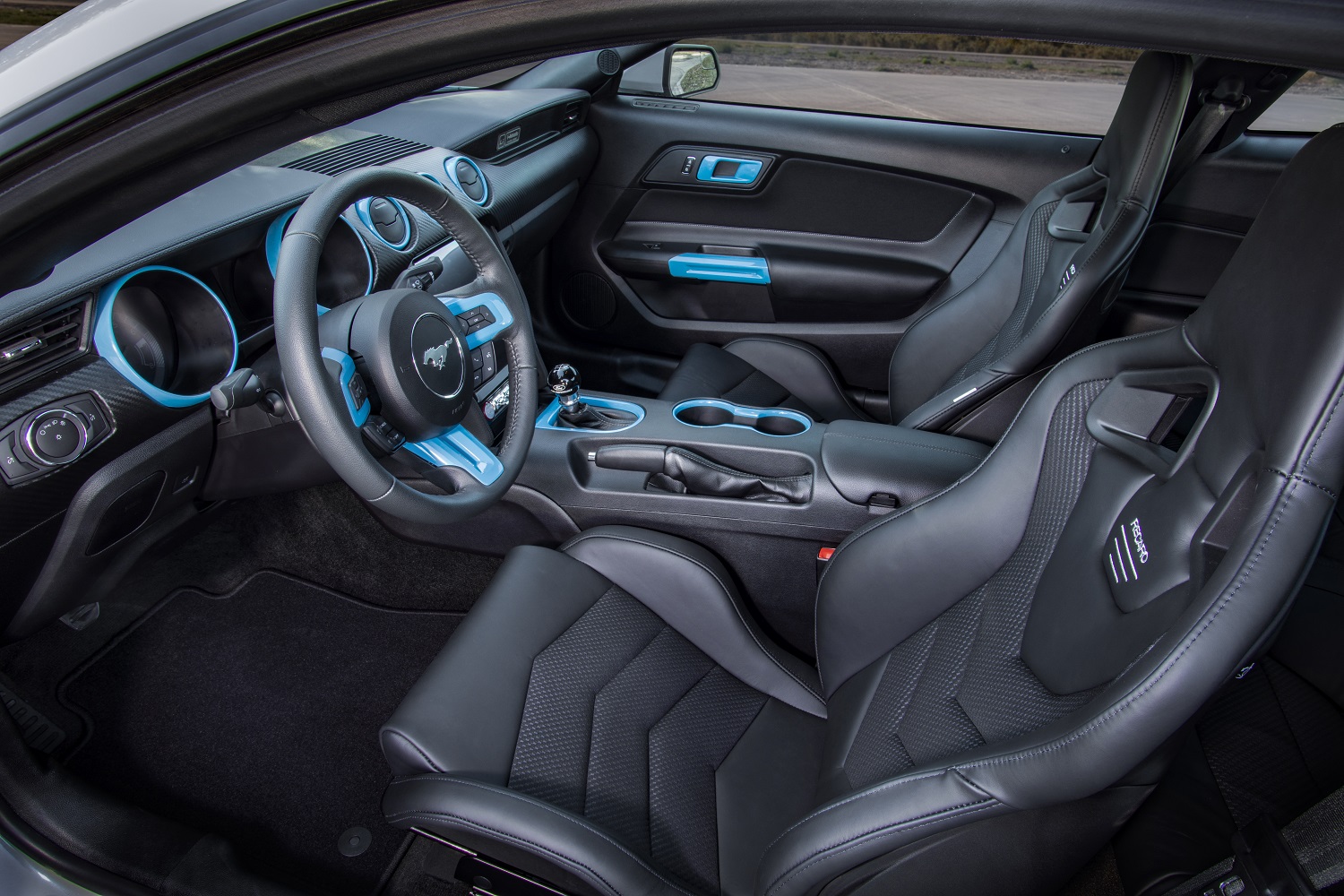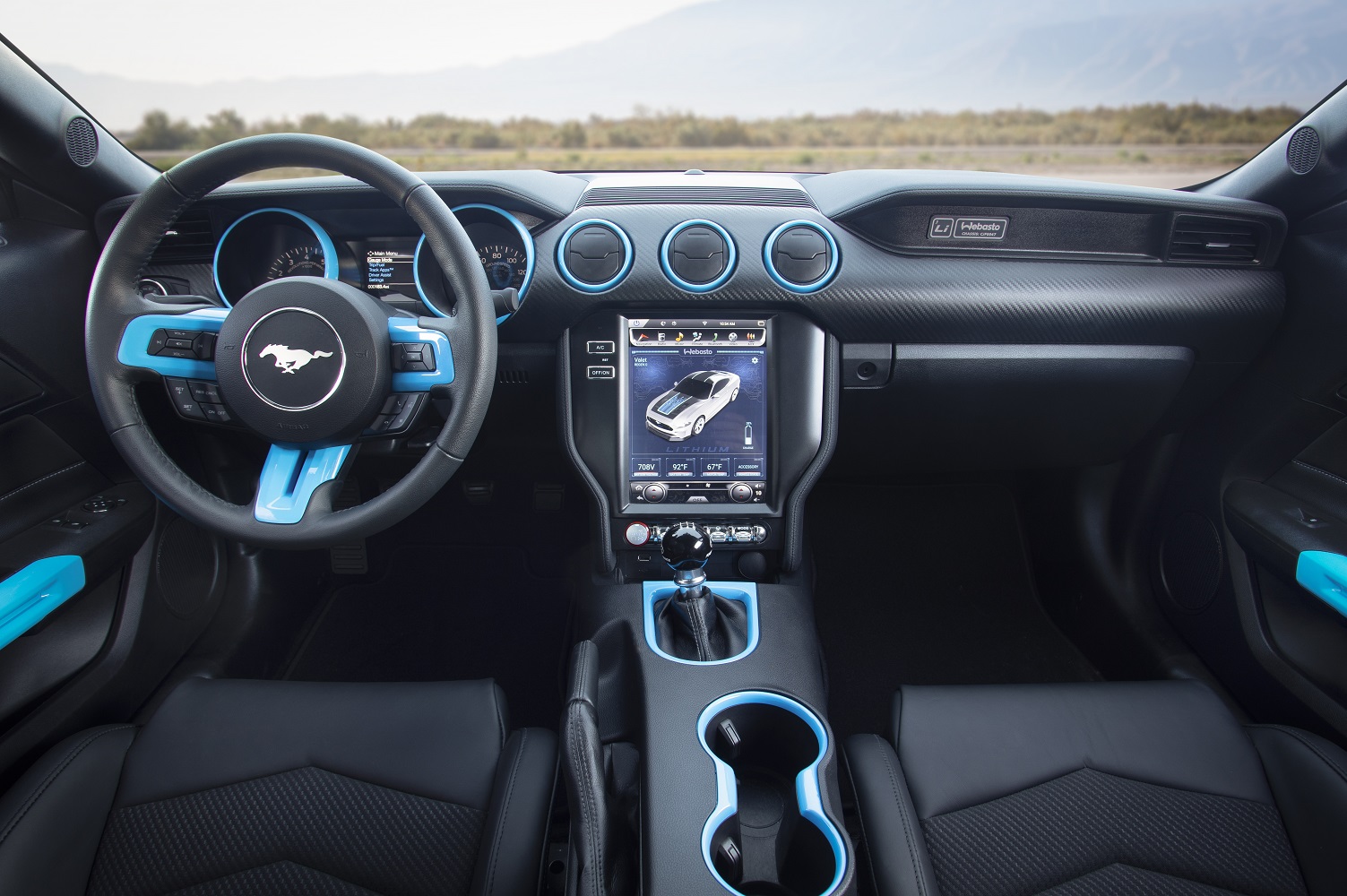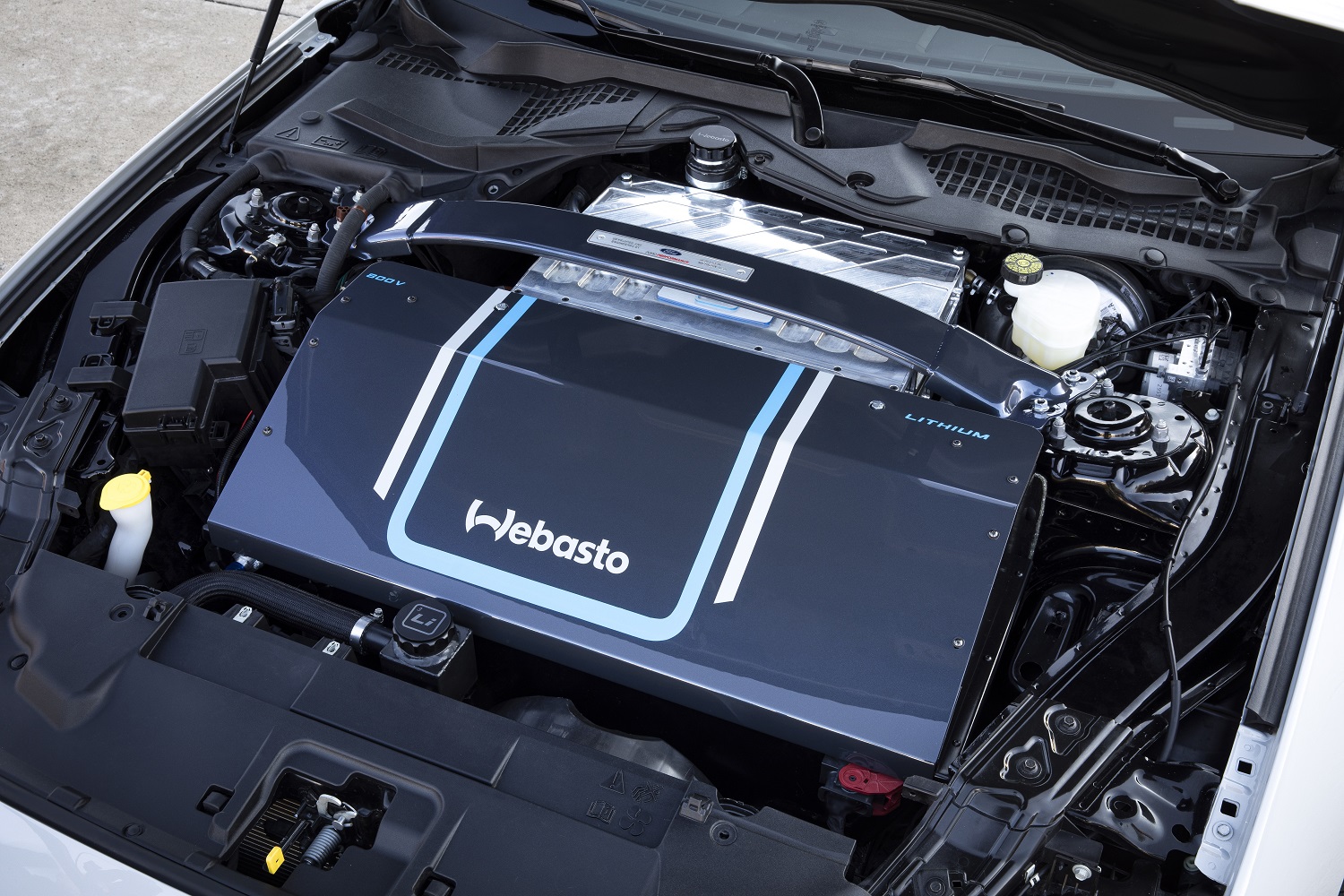If you’re not convinced the automotive world is about to undergo a dramatic transformation, take a look at the sports car segment — the most hallowed space in the industry — for evidence. Mazda is considering making the next MX-5 Miata either a hybrid or an electric car, Chevrolet is allegedly preparing two hybrid variants of the new, eighth-generation Corvette, and Ford won’t rule out an electric Mustang. We’re not talking about the recently unveiled Mach-E, either.
The idea of electrifying the Mustang is controversial, but it’s not new. The Blue Oval traveled to the 2019 SEMA show with a Mustang-based, 900-horsepower electric car named Lithium (pictured above) in tow. It even had a six-speed manual transmission, which is extremely unusual for a battery-powered model. Don’t get your hopes up: It’s just a concept for the time being. It was built to gauge the public’s interest in an electric Mustang, and to show skeptics what’s possible.
While the Lithium hasn’t been approved for production, one of Ford’s high-ranking engineers said we’ll see something like it in showrooms sooner or later. It’s inevitable; the industry has already started pivoting away from piston-powered engines.
“I think if you look out in the future — who knows what time frame that is — the market is eventually going to roll over to EVs,” explained Ron Heiser, the Mustang Mach-E’s chief engineer, in an interview with Australian website Motoring.
Don’t send Ford a deposit yet (or, alternatively, don’t picket outside its headquarters down yet). Heiser didn’t announce that an electric Mustang is on the way; he merely stated that we’ll reach a point where selling a car that’s not electric will be impossible, likely because it will be illegal in most countries. When we’ll get there depends on who you ask; BMW opined that electric cars are overhyped, Honda said they won’t become mainstream in the near future, and Toyota pointed out there’s no demand for battery-powered vehicles in the United States, so designing hybrids makes more sense.
Speaking of, that’s the route Ford is taking as it looks for ways to electrify the Mustang. In 2018, the company announced plans to release a Mustang powered by a gasoline-electric hybrid powertrain in 2020. It didn’t reveal whether it would add a mild hybrid system, regular hybrid technology, or a plug-in hybrid setup to its emblematic pony car, but insiders suggested the model would land with a naturally aspirated V8 engine. Now, 2020 is around the corner, so we likely won’t have to wait long to learn more about it. If it’s the EV you’re after, however, the good news is you’ve got time to save up for it.
